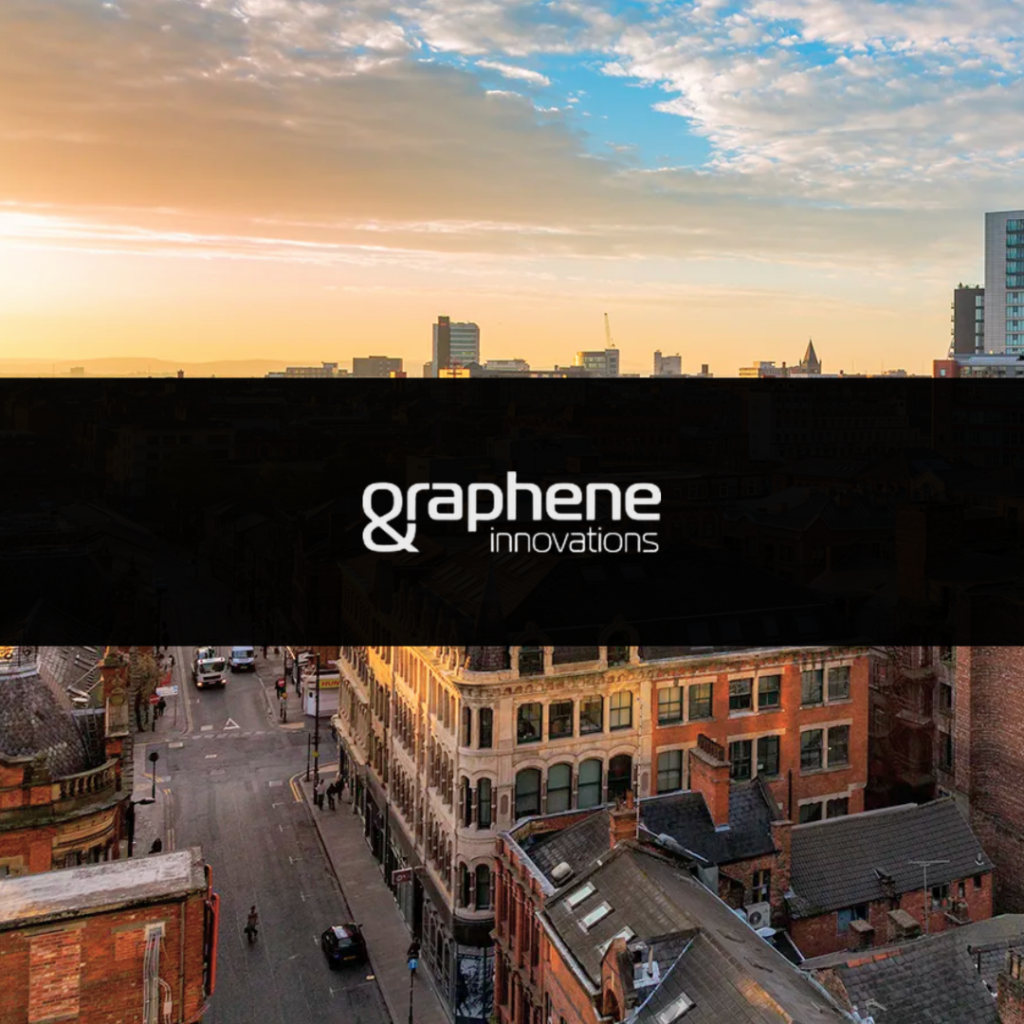Shared 4 May, 2023

A Dubai-based firm’s $1bn investment in technology developed by a University of Manchester start-up is tipped to be a turning point in the commercialisation of graphene and its potential to tackle sustainability challenges.
The recently announced joint venture between Quazar Investment and Graphene Innovations Manchester (GIM) will develop and mass manufacture environmentally friendly building materials which are designed to slash carbon dioxide (CO2) emissions.
It is a “seminal moment” in the material’s commercialisation, claims James Baker, CEO of Graphene@Manchester, the University of Manchester’s research facility where GIM is headquartered. It “demonstrates huge confidence in [graphene’s] potential … to help lead our transition into a net-zero world,” he adds.
Consisting of a single atomic layer of graphite, graphene is the world’s thinnest, lightest and strongest material, according to the American Chemical Society. Since it was first identified by scientists at the University of Manchester in 2004, graphene has been used to coat small goods such as shoes and tires, improving performance and durability.
The Quazar-GIM deal, however, is one of the first attempts to commercialise graphene at scale. “The $1bn investment makes it possible for large-scale manufacturing of sustainable products,” said GIM’s CEO, Vivek Koncherry, adding: “If you want to create a factory that can change the world, you can’t do it with $1m or $10m.”
The joint venture, which is being registered as a company in the UAE, will develop and produce sustainable, graphene-based construction products based on GIM’s technology. These include a type of concrete that requires no water, and can be made from recycled plastic and other materials; and graphene-enhanced tanks and pipes to store and move hydrogen with minimal leaks.
Under the agreement, which was announced on April 11, Quazar will contribute at least $1bn towards the new company. It is among the largest partnership agreements within the UK university ecosystem.
Graphene goals
The potential of GIM’s technology to tackle environmental challenges and support the UAE government’s sustainability goals was one factor behind Quazar’s investment decision, said its chief financial officer, Sameer Salgar.
The deal deepens the UAE’s decade-long drive to exploit graphene’s sustainability potential by partnering with the University of Manchester’s graphene ecosystem. In 2014, Abu Dhabi’s state-owned renewables company Masdar provided £30m to sponsor a Graphene@Manchester building. In 2021, the UAE government provided a $100m grant to Dubai-based Khalifa University to establish a graphene research and innovation centre. Last November, the two universities signed a partnership to boost funding and collaborate on graphene innovation.
GIM’s technologies, specifically its waterless concrete, is “a perfect market fit” for the UAE, said Steven Griffiths, senior vice president for research and development at Khalifa University. “Look around the world for a country that’s growing very rapidly, building lots of things that require concrete, has water scarcity … and is a major producer of plastics,” he said, pointing to the emirates.
Growing from Manchester
GIM’s partnership with Quazar differs from the typical university spin-out model, whereby early stage investors provide capital in exchange for equity. GIM will remain a UK business, and will continue to be majority-owned by Mr Koncherry with minority stakes held by investors in North America and Switzerland.
A $1bn collaboration between a UK university start-up and investor is “relatively rare”, according to Henry Whorwood, head of research and consultancy at data provider Beauhurst. Mr Baker describes it as a “powerful model” that “preserves the intellectual property in the core company, but enables it to move very quickly in [an overseas] territory.” Mr Koncherry is talking to potential customers and investors regarding a UK manufacturing plant, and plans to expand into Europe and US using the partnership model.
“We want to remove cement from construction,” said Mr Koncherry, noting that cement produces 8% of global CO2 emissions. “One country alone can’t make the difference; it’s a global effort.”

*Offer ends on Friday, 7th February.